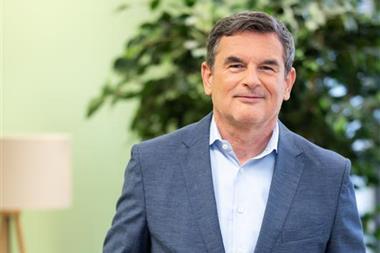UK - Brewer Heineken is to close its defined benefit (DB) scheme, offering employees instead the option to enrol in a new defined contribution (DC) arrangement offered by Standard Life.
The closure, both to new members and further accrual, comes after a review launched in late 2009, examining the Scottish & Newcastle pension plan.
The legacy scheme - which covers employees from a number of companies acquired by Heineken in the past - in the same year reported a funding deficit of £570m (€633m), for which a 12-year recovery plan has since been agreed.
Terms for the new DC scheme will see members asked to contribute a minimum of 3% of salary, with Heineken offering to double any contributions within a threshold of 12%.
Robin Pring, HR director for the brewery’s UK business, acknowledged that while the decision to close the DB scheme would be “disappointing news” for many, it was no longer sustainable in light of increasing longevity and legislative changes.
“In common with many businesses across the UK, we face challenges to manage our long-term pension commitments and to ensure we have a sustainable and secure pension scheme for all stakeholders,” she added.
The new DC scheme was yesterday awarded the Pension Quality Mark Plus by the National Association of Pension Funds, with the organisation’s chief executive Joanne Segars praising the company for “expressly developing” a scheme to match the mark’s standards.
The new arrangements, which took effect earlier this month, follow a previous review of the DB scheme in 2006, which saw a shift to career average for certain members and also the introduction of employee contributions.
In other news, a survey of pension trustees by BlackRock has seen two-thirds of respondents note their concerns about scheme governance, with more than half launching a review of their existing arrangements to address concerns.
Options for improving governance include a shift to partial or full fiduciary management or the appointment of a chief investment officer to oversee all investment decisions.
Fiduciary management, already a widespread practice in the Netherlands, has gained a number of high-profile supporters in recent months, with the Merchant Navy Officers’ Pension Fund last year appointing Towers Watson as delegated chief investment officer and more recently selecting Hymans Robertson as independent investment adviser.
Questioned about arrangements for DC default funds, 38% said the fund would be invested in a diversified growth fund, while 11% instead opted for cash investments.
The majority of respondents - more than 90% - said they were also looking to de-risk their scheme, while 36% had already implemented such measures, something which Juliet Bullick, head of institutional business at the asset manager, welcomed.
“It is encouraging to see so many trustees are implementing changes to improve the governance of their schemes and taking steps to de-risk their DB schemes,” she said.
Finally, a consultancy has warned that next year’s introduction of auto-enrolment will see £2.1bn spent on “ineffective pension plans”.
David Marlow, development manager at Creative Benefits, argued that “lumping everyone” into one scheme was “extremely dangerous”.
“It wouldn’t be appropriate for around 20% of today’s employees who have yet to join a scheme to save for their retirement through auto-enrolment, particularly where a new pension replaces the guaranteed income element of Pensions Credit.”
He estimated it was conceivable for someone near retirement to save through auto-enrolment and thereby lose out on additional state pension payments that are assessed on an individual means-tested basis.
Marlow added that those not deemed “appropriate pension savers” should instead opt out, saving employers the contribution fee.
Asked by IPE how these predictions could be reconciled with proposals by the government to create a flat-rate state pension, Marlow argued that these reforms were by no means guaranteed.
“Apart from anything else, the cost is going to be enormous, and at the moment, it may be an unpalatably high cost,” he said, disregarding calculations by the Pension Policy Institute that indicated the reforms would be cost neutral until at least 2050.












